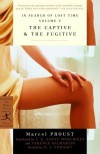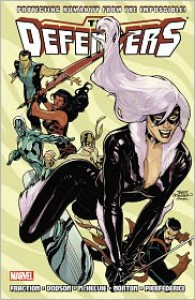Currently reading

-This was always one of my favorite Trixie books growing up. I am not surprised to learn that ghostwriter Nicolete Meredith Stack was originally an Iowegian, because the Iowa sheep farm setting always seemed like it must be someone's personal interest.
- All of a sudden everyone makes a lot of Biblical references. This wouldn't be strange if it weren't the first time that any of them had done so. Well, aside from the characters who are new in this book, and were presumably making Biblical references before the Bob-Whites arrived.
- The Obligatory Romance Subplot is at least handled a little more subtly than in The Mysterious Code. Trixie has obviously internalized the idea that being a tomboy is bad and reproaches herself for it all the time, which makes me sad, but I like that she tries some new things and then decides what she's comfortable with. When a local boy she meets tries to police her from the opposite perspective and says that he was interested in her until she started acting like a girl and makes unfavorable comparisons with Honey and Di, Trixie shuts him right down. Jim, by contrast, affirms her choices and is a much better Obligatory Heterosexual Love interest, even though the scene with the ID bracelet is weirdly possessive and ends the book on a sour note to me.
- Unlike Trixie/Jim, Honey/Brian and Di/Mart are completely implausible pairings and I don't seriously believe they would really date each other.
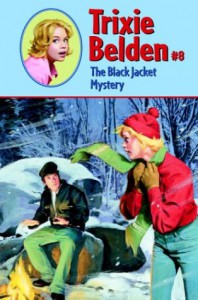
According to this article examining the Trixie Belden Authorship Question, the unknown ghostwriter who penned this particular volume never contributed any further efforts. Which is probably for the best.
- It's got to suck when you're forced to leave New York City for a small town in the Hudson Valley and then all those hicks you look down on make fun of your cowboy boots.
- Wait, cowboy boots? Yeah, Dan Mangan belongs to a gang called…The Cowhands. They wear cowboy boots and have their gang name painted on the back of their eponymous black jackets. It's pretty embarrassing. To be fair, The Mysterious Visitor's depiction of Skid Row was also pretty embarrassing, so it's not just ghostwriters perpetuating bizarre depictions of the criminal underclass.
- All of a sudden Trixie and Honey have always had penpals in Mexico. And sent them books for their school library. Which subsequently burned in a fire. It's ice carnival time!
- Actually this book reads as though its plot elements were drawn directly from the previous ghostwriter's maiden effort: the gang element, the fundraising event, the one boy in particular who bickers with the Bob-Whites throughout the book. Unlike Tad Williams, however, Dan Mangan gets rushed into full-on club membership, and equally quickly shuffled offstage at the beginning of nearly every subsequent book. I bet the editors really wished they had penciled in a change to the ending of this book.
 Oh man, it's the first ghost-written book and things start getting crazy!
Oh man, it's the first ghost-written book and things start getting crazy!- Even as a little kid, it was never clear to me what, exactly, the Sleepyside school board could stop the Bob-Whites of the Glen from doing, aside from maybe wearing their jackets to school. No more hanging out in the refurbished gatehouse on the Wheeler's property for you! Pooling your earnings is strictly forbidden! Don't even think about making bird calls!
- Seriously everyone needs to stop reciting paragraphs of facts about UNICEF.
- New characters everywhere. Mrs. Vanderpoel is okay. Brom is weird. Tad Robinson is just no. Token Japanese characters are tokens.
- Dress-shopping. Orchids. Why.
 The art in this book is, of course, gorgeous. The text mostly covers the tech involved in rendering Riven, which it was released in conjunction with, with some sidelights on Myst and other aspects of the Riven creative process.
The art in this book is, of course, gorgeous. The text mostly covers the tech involved in rendering Riven, which it was released in conjunction with, with some sidelights on Myst and other aspects of the Riven creative process.
 At the present rate, there will not be enough plot for so much as a single book spread across this trilogy.
At the present rate, there will not be enough plot for so much as a single book spread across this trilogy.
 Published thirty years ago but still fresh and (sadly) relevant. The brilliant cover doubles as a handy crib sheet, but I wish I had gotten around to putting in an interlibrary loan request sooner.
Published thirty years ago but still fresh and (sadly) relevant. The brilliant cover doubles as a handy crib sheet, but I wish I had gotten around to putting in an interlibrary loan request sooner.
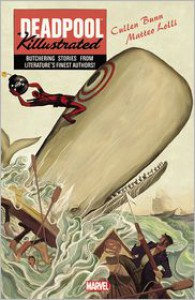 I actually enjoyed this sequel to [b:Deadpool Kills the Marvel Universe|15789310|Deadpool Kills the Marvel Universe|Cullen Bunn|http://d202m5krfqbpi5.cloudfront.net/books/1356842215s/15789310.jpg|21510128] more than the original, because it is so nerdy and honestly I am more of a classic lit geek than anything else. I thought both the lit references and the larger concept of a shared world of characters and ideas were handled pretty well, especially within the constraints of a four-issue miniseries, which is pretty short.
I actually enjoyed this sequel to [b:Deadpool Kills the Marvel Universe|15789310|Deadpool Kills the Marvel Universe|Cullen Bunn|http://d202m5krfqbpi5.cloudfront.net/books/1356842215s/15789310.jpg|21510128] more than the original, because it is so nerdy and honestly I am more of a classic lit geek than anything else. I thought both the lit references and the larger concept of a shared world of characters and ideas were handled pretty well, especially within the constraints of a four-issue miniseries, which is pretty short.

First of all, this book is really poorly titled; a more accurate version would be Friends with Your Siblings, or, even more accurate but completely unwieldy Friends with Your Siblings and Also New People Whose Only Friends are Their Siblings. (I can see why they didn't go with that one.) All the strengths (and weaknesses) of the book stem from its use of semi-autobiographical detail, and pitching it so broadly with such a generic title just sets up expectations that won't be met for a lot of readers.
Unlike many of those readers, who don't believe that such a thing is plausible, I was also homeschooled until I entered public high school! This is actually pretty common among homeschoolers who do it for reasons other than to hermetically seal their children from a sinful world; high school is when having specialist teachers for upper-level subjects outweighs the benefits of individual attention and personalized curriculum for your average homeschooled kid. I really liked the bits about Maggie being at a new school and new to school, especially her hand-drawn and annotated maps of the school building. It's always great when people say your actual life experiences are unrealistic! What they probably mean, and what I don't entirely disagree with, is that the author doesn't always sell you on those details in a believable way.
Contre the title, Maggie only makes friends with one boy at her new school, and it's a boy who has unresolved history with Maggie's oldest brother and whose only other friend is his own little sister. The importance of your siblings as your primary social circle is at the core of the book, and it's very sweet.
 Even though this is pretty much just a polished collection of a number of things Dan's said or written elsewhere in the past few years, it's an entertaining read.
Even though this is pretty much just a polished collection of a number of things Dan's said or written elsewhere in the past few years, it's an entertaining read.
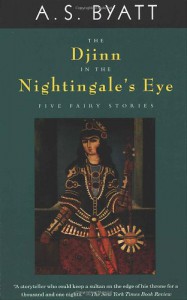 The stories in this collection are wonderful, even if this edition is unnecessarily typeset with wide margins and overgenerous linespacing to make the book look longer than it is, and reprinting the two stories from [b:Possession|41219|Possession|A.S. Byatt|http://d202m5krfqbpi5.cloudfront.net/books/1311978255s/41219.jpg|2246190] is cheating (and they were better where they were originally, in context). "The Story of the Eldest Princess" is a perfect fairy story, especially if you have ever been a bookish eldest daughter, and the titular novella is superb.
The stories in this collection are wonderful, even if this edition is unnecessarily typeset with wide margins and overgenerous linespacing to make the book look longer than it is, and reprinting the two stories from [b:Possession|41219|Possession|A.S. Byatt|http://d202m5krfqbpi5.cloudfront.net/books/1311978255s/41219.jpg|2246190] is cheating (and they were better where they were originally, in context). "The Story of the Eldest Princess" is a perfect fairy story, especially if you have ever been a bookish eldest daughter, and the titular novella is superb.
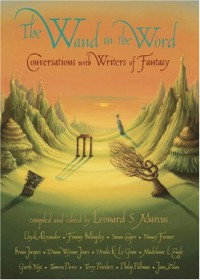 Really good short interviews with some very beloved authors of children's fantasy. All of them are pitched at a level where fans who are still kids could read and enjoy them, but also very enjoyable if you happen to have grown up a bit in the interim.
Really good short interviews with some very beloved authors of children's fantasy. All of them are pitched at a level where fans who are still kids could read and enjoy them, but also very enjoyable if you happen to have grown up a bit in the interim.
 My low interest in this book has actually picked up a bit with the Secret Origin arc. It's a silly, unnecessary retcon, sure, but it's a silly unnecessary retcon executed with style. And anyway, I think retcons and fanwanking and no prizes are a lot of the fun in ongoing superhero titles.
My low interest in this book has actually picked up a bit with the Secret Origin arc. It's a silly, unnecessary retcon, sure, but it's a silly unnecessary retcon executed with style. And anyway, I think retcons and fanwanking and no prizes are a lot of the fun in ongoing superhero titles.


